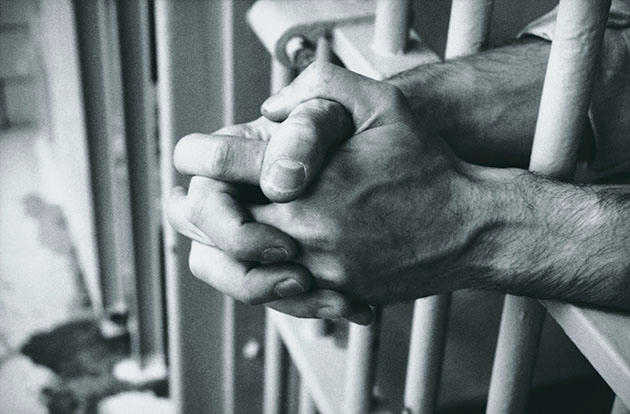 The Lookout
The LookoutAfter 25 years in solitary confinement, a prisoner explains what it’s like

A prisoner who has spent 25 years in solitary confinement wrote about what it's like to spend a quarter of a century cut off from human contact.
William R. Blake's essay appeared on Solitary Watch, a prisoner advocacy group. Blake was also given an honorable mention in the Yale Law Journal’s Prison Law Writing Contest.
In 1987, Blake, 23 at the time, shot two law enforcement officials, killing one. He had been on his way to appear in court for drug and robbery charges. Though handcuffed, he grabbed a gun from Deputy Bernie Meleski and began shooting. Deputy David Clark, who was married with two children, died. Maleski was gravely wounded, but survived.
The judge, Blake said, told him he deserved "an eternity in hell" for the shootings. "Apparently he had the idea that God was not the only one justified to make such judgment calls."
The essay begins by acknowledging the gravity of his crime:
Even by the standards of my own belief system, such as it was back then, I deserved to die for what I had done. I took the life of a man without just cause, committing an act so monumentally wrong that I could not have argued that it was unfair had I been required to pay with my own life.
However, Blake has found that life in solitary is far worse than any death sentence:
On July 10, 2012, I finished my 25th consecutive year in solitary confinement, where at the time of this writing I remain. Though it is true that I’ve never died and so don’t know exactly what the experience would entail, for the life of me I cannot fathom how dying any death could be harder or more terrible than living through all that I have been forced to endure for the last quarter-century.
Blake goes on to describe the intense boredom:
You probably think that you understand boredom, know its feel, but really you don’t. What you call boredom would seem a whirlwind of activity to me, choices so many that I’d likely be befuddled in trying to pick one over all the others.
Boredom leads to intense loneliness, which Blake describes in grave detail:
I’ve experienced times so difficult and felt broken and loneliness to such a degree that it seemed to be a physical thing inside so thick it felt like it was choking me, trying to squeeze the sanity from my mind, the spirit from my soul, and the life from my body.
His conclusion is devastating:
Had I known in 1987 that I would spend the next quarter-century in solitary confinement, I would have certainly killed myself. If I took a month to die and spent every minute of it in severe pain, it seems to me that on a balance that fate would still be far easier to endure than the last twenty-five years have been. If I try to imagine what kind of death, even a slow one, would be worse than twenty-five years in the box—and I have tried to imagine it—I can come up with nothing. Set me afire, pummel and bludgeon me, cut me to bits, stab me, shoot me, do what you will in the worst of ways, but none of it could come close to making me feel thing as cumulatively horrifying as what I've experienced through my years in solitary. Dying couldn't take but a short time if you or the State were to kill me; in SHU I have died a thousand internal deaths. The sum of my quarter-century's worth of suffering has been that bad.
According to Solitary Watch, he's at Elmira Correctional Facility in western New York.
Blake gave an interview last year to YNN News in Syracuse where he reflected on his crimes. You can watch the clips here.
